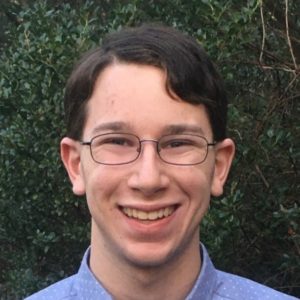“All students, particularly those from marginalized and vulnerable communities, have a right to feel safe and welcome on the Northeastern University campus.”
Northeastern’s Student Government Association (SGA) couldn’t have said it better: all Northeastern students, no matter their racial, ethnic, religious or socioeconomic backgrounds, deserve a warm, open, and comfortable campus.
Yet, just 300 words deeper into Senate Resolution FA-21-103—which calls for increased transparency from Northeastern University’s Police Department (NUPD), among other stipulations—the SGA makes a specific note of NUPD’s participation “…in a military training program (dubbed “The Deadly Exchange”) with the Israeli Defense Forces.”
Why Northeastern’s SGA felt the compelling need to include this mention of Israel, separate from their discussion of NUPD’s issues more broadly, is not just unclear, but blatantly singles out Israel as a cause of alleged NUPD misconduct.
SGA wrote Senate Resolution FA-21-103 with “marginalized and vulnerable communities” in mind. And they were right to do so: too many students allege that NUPD detains students of color without justification, denies students of color access to buildings, and questions students’ status as members of the Northeastern community. Racism has no place on Northeastern’s campus or anywhere else.
But the implication that these allegations are related to Israel is absurd on its face.
What the SGA refers to as the “Deadly Exchange” (an antisemitic campaign started by the highly problematic organization Jewish Voice for Peace) is a collection of joint training programs between U.S. and Israeli police in which officers learn de-escalation and intelligence-gathering techniques. These include ways of disrupting phone-transmitted bomb-detonation signals, how to identify signature chemical mixtures in explosive residues, and how to recognize commonalities among terrorist ideologies. The trainings don’t involve any fieldwork, which means that neither U.S. nor Israeli police ever practice manhandling suspects. Instead, they consist of conferences, demonstrations, and discussions.
Clearly, these programs are entirely disconnected from NUPD’s alleged racial profiling of students. Racism in the United States long precedes any sort of U.S.-Israeli law enforcement initiatives and blaming the latter for the former masks true sources of racial inequity.
Really, by emphasizing de-escalation and prevention, U.S.-Israel training embodies and encourages relatively progressive policing practices. The SGA’s decision to lump these programs and blatant racism together is misinformed at best and malicious at worst.
Still, the SGA goes a step further: U.S.-Israel joint police programs are akin to training law enforcement with a “military force,” they say.
Like the notion that joint trainings contribute to alleged NUPD racism, this claim is plainly wrong and incredibly misleading. First, NUPD met with Israeli National Police, not the Israeli military. Second, NUPD also met with Palestinian Police, among other security experts, intelligence analysts, and journalists, as law enforcement typically do on joint U.S.-Israel trainings. The SGA chose to omit this fact from their resolution. Third, NUPD’s training didn’t involve any physical exercises. Mostly, they discussed Israeli security failures, what Israeli law enforcement learned from them, and how to prevent similar incidents in the future.
Northeastern’s SGA should amend Senate Resolution FA-21-103 to remove its ill-informed and misleading anti-Israel rhetoric. Joint U.S.-Israeli police training programs have nothing to do with NUPD’s current plights, whether that be allegations of racism or militarization, and mention of them doesn’t belong in a resolution aimed at addressing such pressing issues.
Jake Egelberg is a 2021-22 CAMERA fellow studying biochemistry at Northeastern University.

This article was originally published in JNS.

